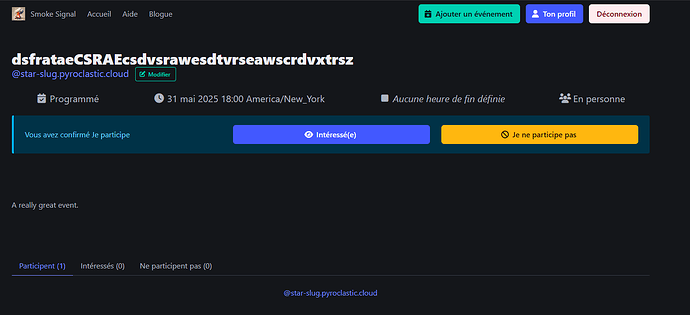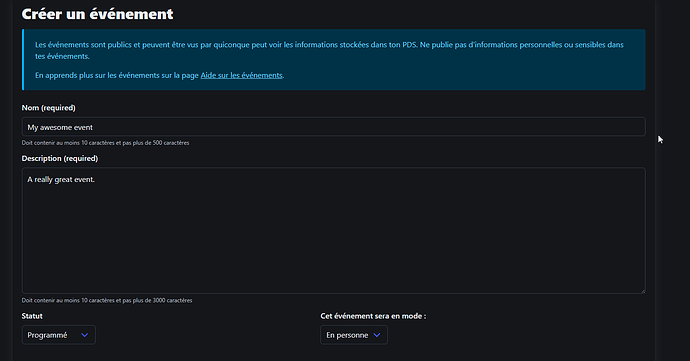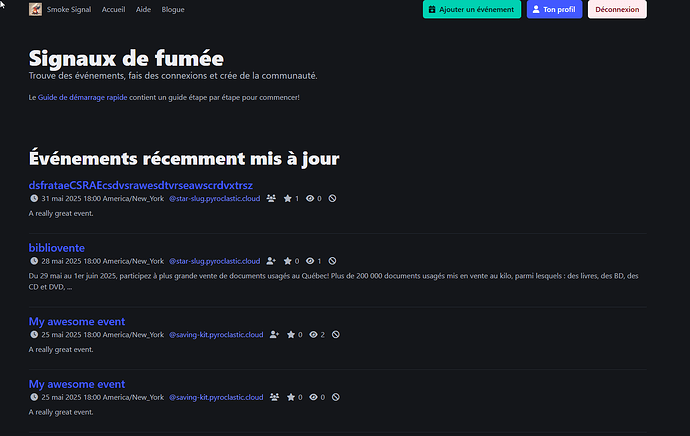Potential Pitfalls with Latin-Based Languages for Fluent + MiniJinja
1. Gendered Language Issues 
Problem: Romance languages like French have grammatical gender that affects articles, adjectives, and participles.
Example from your content:
Un point central où se croisent artistes, organisateurs d'événements et public
Pitfall: Simple key-value translation won’t handle cases where the gender of a variable affects surrounding words:
Problematic - doesn’t handle gender agreement
welcome-message = Bienvenu{ $userName } dans notre plateforme
Better approach:
Handle gender explicitly
welcome-message-masculine = Bienvenu { $userName } dans notre plateforme
welcome-message-feminine = Bienvenue { $userName } dans notre plateforme
welcome-message-neutral = Bienvenu·e { $userName } dans notre plateforme
Or use Fluent’s select expressions
welcome-message = { $userGender ->
[masculine] Bienvenu { $userName }
[feminine] Bienvenue { $userName }
*[other] Bienvenu·e { $userName }
} dans notre plateforme
2. Number Agreement Complexity 
Problem: Romance languages have complex plural rules affecting multiple words in a sentence.
Pitfall: English-style pluralization doesn’t work:
# Too simplistic for French
event-count = { $count ->
[one] { $count } événement récent
*[other] { $count } événements récents
}
Better approach:
French requires agreement on multiple words
event-count = { $count ->
[0] Aucun événement récent
[one] { $count } événement récent
*[other] { $count } événements récents
}
More complex with adjective agreement
participant-count = { $count ->
[0] Aucun·e participant·e inscrit·e
[one] { $count } participant·e inscrit·e
*[other] { $count } participant·e·s inscrit·e·s
}
3. Accented Characters and Text Length 
Problem: French text is typically 15-30% longer than English, and accented characters can cause encoding issues.
Example from your template:
<h1>Incubateur Techologique Culturel Québécois</h1>
Pitfalls:
- UI layouts breaking due to longer text
- Character encoding issues (é, à, ç, etc.)
- Text overflow in buttons/small spaces
Solutions:
// Ensure proper UTF-8 handling in your filter
env.add_filter("t", move |key: String, args: Value| -> Result<String, minijinja::Error> {
// Always ensure UTF-8 output
let result = locales.format_message(&lang, &key, variables.as_ref())
.unwrap_or_else(|| format!("Missing: {}", key));
// Validate UTF-8 encoding
if !result.is_ascii() {
// Log potential layout issues for long text
if result.len() > key.len() * 1.3 {
tracing::warn!("French translation significantly longer than key: {}", key);
}
}
Ok(result)
});
4. Formal vs. Informal Address (Tu/Vous) 
Problem: French requires choosing between formal (vous) and informal (tu) forms.
Your current context shows informal tone, but this needs consistency:
Pitfall: Mixing formal/informal in the same interface:
Inconsistent
welcome-title = Bienvenue sur notre plateforme # Formal context
create-button = Crée ton événement # Informal "ton"
Solution: Establish a consistent voice:
# Consistent informal (more common for cultural platforms)
welcome-title = Bienvenue sur notre plateforme
create-button = Crée ton événement
profile-edit = Modifie ton profil
# Or consistent formal
welcome-title = Bienvenue sur notre plateforme
create-button = Créez votre événement
profile-edit = Modifiez votre profil
5. Context-Dependent Translations 
Problem: The same English word can have different French translations based on context.
Example: “Event” can be:
- “Événement” (general)
- “Spectacle” (performance)
- “Manifestation” (cultural event)
- “Activité” (activity)
Pitfall: Using generic translations:
# Too generic
event = événement
create-event = Créer un événement
**Better approach:**
# Context-specific
event-general = événement
event-cultural = manifestation culturelle
event-performance = spectacle
create-cultural-event = Organiser une manifestation culturelle
6. Date and Time Formatting 
Problem: French date/time formats and conventions differ significantly.
Pitfall: Using English-style formats:
// In your Rust code, handle French date formatting
pub fn format_french_date(date: &DateTime<Tz>) -> String {
// French uses different day/month names and format
date.format("%A %d %B %Y à %H:%M").to_string()
}
// In Fluent
event-date = Événement le { DATETIME($date, month: "long", day: "numeric", year: "numeric") }
7. Template Performance Impact 
Problem: Romance languages often require more complex Fluent expressions, impacting performance.
Pitfall: Complex gender/number agreement logic in every template render:
<!-- This gets expensive with many variables -->
{{ "user-count" | t(lang=language, count=users|length, gender=user.gender) }}
**Solution**: Pre-compute complex translations:
// Pre-compute expensive translations in handlers
let user_message = web_context.i18n_context.locales
.format_message(&language, "user-welcome", Some(&fluent_args! {
"name" => user.name,
"gender" => user.gender,
"count" => user.event_count
}))
.unwrap_or_default();
// Pass pre-computed string to template
template_context! {
user_welcome_message => user_message,
}
8. Quebec French Specificities 
Problem: Your fr-ca locale has Quebec French specificities that differ from European French.
Key differences affecting your event platform:
- “Événement” vs “Évènement” (accent)
- “Fin de semaine” vs “Week-end”
- “Inscription” vs “Enregistrement”
- “Courriel” vs “E-mail”
Solution: Maintain Quebec French lexicon:
# Quebec French (fr-ca)
email-label = Courriel
weekend-event = Événement de fin de semaine
register-button = S'inscrire
# European French (fr-fr) would be different
email-label = E-mail
weekend-event = Événement de week-end
register-button = S'enregistrer
Recommended Implementation Strategy for Your Use Case
Based on your Smoke Signal platform, here’s my refined recommendation:
// Enhanced i18n filter for Romance languages
pub fn add_romance_language_filters(env: &mut Environment<'_>, locales: &Locales) {
let locales_clone = locales.clone();
env.add_filter("t", move |key: String, args: Value| -> Result<String, minijinja::Error> {
let lang = args.get("lang")
.and_then(|v| v.as_str())
.and_then(|s| s.parse().ok())
.unwrap_or_else(|| "en-us".parse().unwrap());
let mut fluent_args = fluent::FluentArgs::new();
// Handle common Romance language patterns
if let Some(vars) = args.get("vars") {
if let Ok(obj) = vars.as_object() {
for (key, value) in obj.iter() {
match key {
"count" => {
// Ensure proper number handling for Romance plurals
if let Some(n) = value.as_u64() {
fluent_args.set("count", n);
}
},
"gender" => {
// Handle grammatical gender
if let Some(g) = value.as_str() {
fluent_args.set("gender", g);
}
},
_ => {
if let Some(s) = value.as_str() {
fluent_args.set(key, s);
}
}
}
}
}
}
let result = locales_clone.format_message(&lang, &key, Some(&fluent_args))
.unwrap_or_else(|| {
tracing::warn!("Missing translation for key '{}' in locale '{}'", key, lang);
format!("[{}]", key)
});
// Validate for potential UI issues with longer Romance language text
if lang.to_string().starts_with("fr") && result.len() > key.len() * 1.4 {
tracing::debug!("French translation much longer than key: {} -> {}", key, result);
}
Ok(result)
});
}
This approach addresses the specific challenges of Romance languages while leveraging your existing solid i18n infrastructure.



